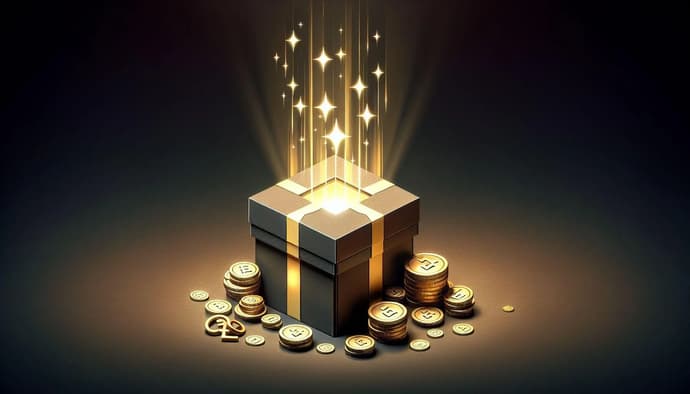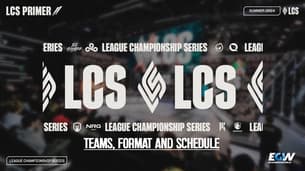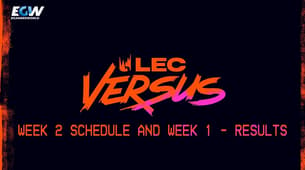Monetisation in the gambling industry

The gambling industry has evolved dramatically in recent decades, from simple one-off purchases to complex monetisation strategies. Today, game developers use a variety of methods to generate revenue, from in-game purchases to subscription models. One example is MGA casino, which attracts players through various bonus structures and promotional offers. These strategies are designed to keep players engaged and spending money over time.
In-game monetisation is not just about making money; it's about creating a sustainable ecosystem that benefits both developers and players. However, some practices have raised significant controversy. Among these, loot boxes have become one of the most debated monetisation strategies in the gaming world. But what are loot boxes, and why have they become such a polarising topic?
The rise of loot boxes in video games
Loot boxes first appeared in video games in the mid-2000s, inspired by the success of collectible card games. These virtual items give players a chance to get random rewards, from cosmetic items to powerful in-game equipment. The concept caught on quickly, with games like 'Team Fortress 2' and 'FIFA' incorporating loot boxes into their revenue models.
As the popularity of loot boxes grew, so did their presence in high-profile games. Titles like "Overwatch," "Star Wars Battlefront II," and "Fortnite" have all integrated loot boxes into their gameplay. The attraction is simple: players enjoy the thrill of opening a loot box, hoping to obtain rare and valuable items. But this excitement comes at a cost, both financial and psychological.
How loot boxes work
Loot boxes are usually purchased with real money or in-game currency. Once acquired, players can open the loot box to reveal a random set of items. The contents of each loot box are determined by a predetermined algorithm, which ensures that the rewards are distributed according to specific probabilities.
The element of chance is a significant factor in the attraction of loot boxes. Players are often drawn to the thrill of not knowing what they will get, similar to the thrill of gambling. This unpredictability can lead to repeat purchases, as players try to get the desired items.
From a psychological perspective, loot boxes exploit several cognitive biases. The "sunk cost fallacy" encourages players to keep spending money in the hope of recouping their investment. "The variable ratio reinforcement scheme, commonly used in slot machines, keeps players engaged by providing intermittent rewards. These factors combine to create an enticing, albeit potentially exploitative, experience.
Impact on the gaming experience
The impact of loot boxes on the gaming experience is a topic of hot debate. On the one hand, loot boxes can enhance gameplay by offering unique and sought-after items. Players can feel a sense of achievement when they receive rare rewards, and the thrill of opening a loot box can add an element of fun to the game.
However, there are also significant drawbacks to consider. The addictive nature of loot boxes can lead to excessive spending, especially among younger and more vulnerable players. Some players may feel pressurised to buy loot boxes to remain competitive, leading to a pay-to-win scenario that undermines the integrity of the game.
Financial exploitation is another concern, with reports emerging of players spending hundreds or even thousands of dollars on loot boxes, often with little to show for their investment. This has led to calls for increased regulation and transparency in the gambling industry, with some countries taking steps to classify loot boxes as a form of gambling.
Comparing loot boxes with other monetisation strategies
Loot boxes are just one of many monetisation strategies used by game developers. In-game purchases, for example, allow players to buy specific items or upgrades directly, without any element of chance. This model is often seen as more transparent and fair, as players know exactly what they are getting for their money.
Subscription models are another popular approach, offering players access to a library of games or exclusive content for a recurring fee. This model provides a steady stream of revenue for developers while giving players a predictable and consistent gaming experience.
MGA casino offers a different perspective on monetisation, using bonus structures and promotional offers to attract and retain players. This approach relies on providing value and incentives to keep players engaged, rather than relying on chance-based mechanisms such as loot boxes.
The future of loot boxes and the gaming experience
The future of loot boxes in video games is uncertain. As the debate about their ethical implications continues, regulatory bodies around the world are taking note. Some countries have already imposed restrictions on loot boxes, while others are considering similar measures.
Evolving player attitudes may also play a role in shaping the future of loot boxes. As awareness of the potential risks increases, players may become more careful about their spending habits. Game developers, in turn, may need to adjust their monetisation strategies to adapt to changing expectations and regulatory requirements.
Ultimately, the gaming industry needs to strike a balance between generating revenue and offering a positive gaming experience. While loot boxes have proven to be a lucrative monetisation strategy, their long-term viability will depend on addressing the concerns of players and regulators. As the industry continues to evolve, it will be interesting to see how developers innovate and adapt to the changing conditions of monetisation in games.

Elen Stelmakh er en kreativ person, der er dedikeret til at fremme spilkulturen gennem artikler og visuelt design. Som fuldtidsforfatter på EGamersWorld og designer for en gaming-hjemmeside skaber Elen ikke kun indhold, men tilfører det også energi og kreativitet.
 Forhåndsvisning af LCS 2026 Lock-In - hold, format og tidsplanLCS 2026 Lock-In guide: Fuld tidsplan, Fearless Draft-format og hold, du skal holde øje med. Analyser Sentinels, LYON og FlyQuest forud for starten den 24. januar.
Forhåndsvisning af LCS 2026 Lock-In - hold, format og tidsplanLCS 2026 Lock-In guide: Fuld tidsplan, Fearless Draft-format og hold, du skal holde øje med. Analyser Sentinels, LYON og FlyQuest forud for starten den 24. januar. Arknights: Endfield Overview - Gameplay, karakterer, mekanik og førstehåndsindtrykSlut dig til Endministrator på Talos-II! Tjek vores Arknights: Endfield-oversigt, der dækker prangende kamp, fabriksautomatisering og karakterer i topklasse. Spil nu på pc, PS5 og mobil!
Arknights: Endfield Overview - Gameplay, karakterer, mekanik og førstehåndsindtrykSlut dig til Endministrator på Talos-II! Tjek vores Arknights: Endfield-oversigt, der dækker prangende kamp, fabriksautomatisering og karakterer i topklasse. Spil nu på pc, PS5 og mobil! LEC Versus 2026 Uge 2 skema og uge 1 - resultaterLEC Versus 2026: Opsummering af uge 1 og forhåndsvisning af kampene i uge 2. Analyse af holdopstillinger, G2 Esports' præstationer og gæsteholdenes fremskridt, når de kæmper om titlen i det nye Bo1-format.
LEC Versus 2026 Uge 2 skema og uge 1 - resultaterLEC Versus 2026: Opsummering af uge 1 og forhåndsvisning af kampene i uge 2. Analyse af holdopstillinger, G2 Esports' præstationer og gæsteholdenes fremskridt, når de kæmper om titlen i det nye Bo1-format. Hvornår kommer det nye ARC Raiders-kort ud?Find ud af alt, hvad vi ved om det nye ARC Raiders-kort, der kommer i april 2026, herunder Escalation-køreplanen, Riven Tides-opdateringen, den nye boss og ændringer i gameplayet.
Hvornår kommer det nye ARC Raiders-kort ud?Find ud af alt, hvad vi ved om det nye ARC Raiders-kort, der kommer i april 2026, herunder Escalation-køreplanen, Riven Tides-opdateringen, den nye boss og ændringer i gameplayet.

